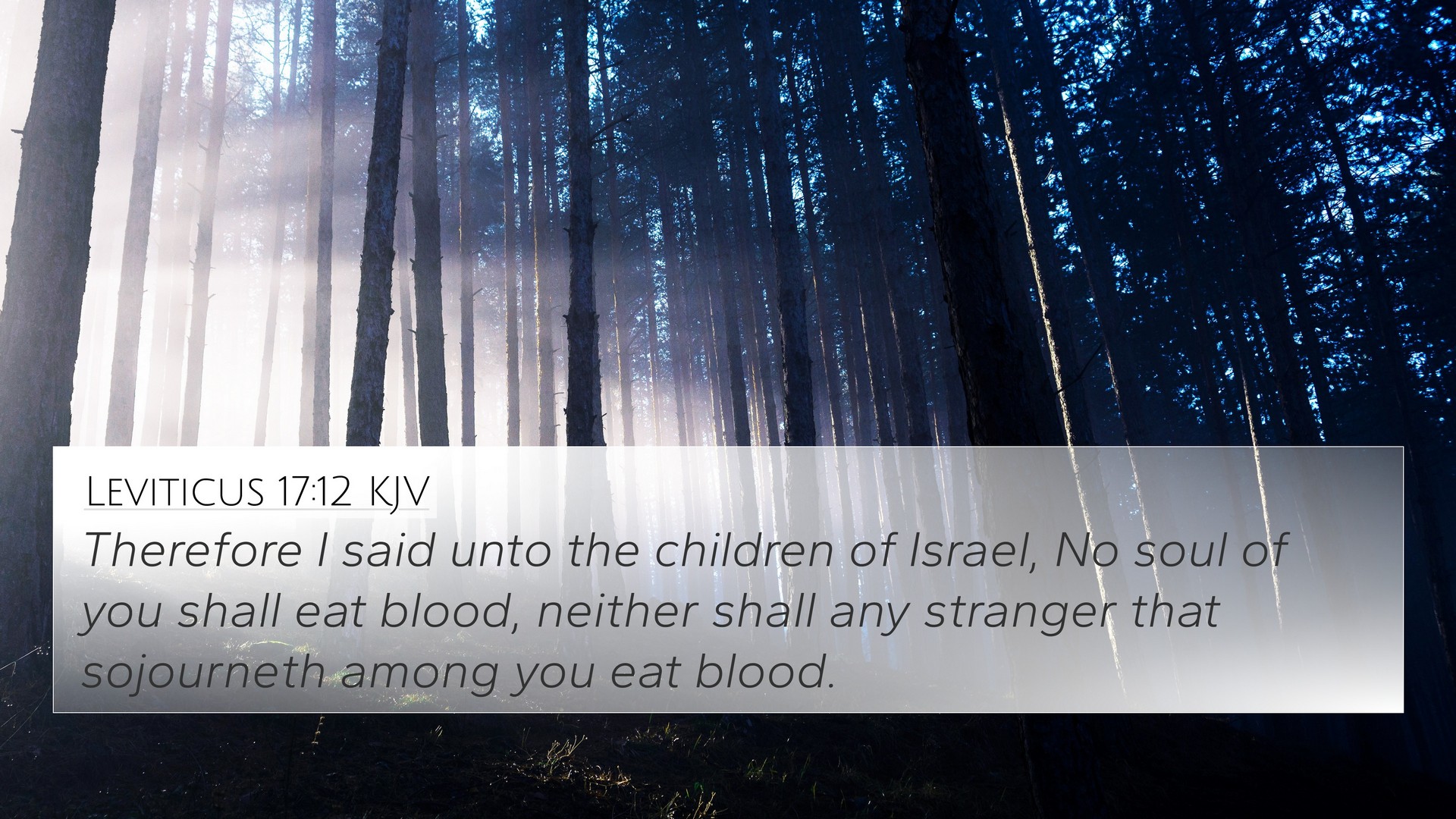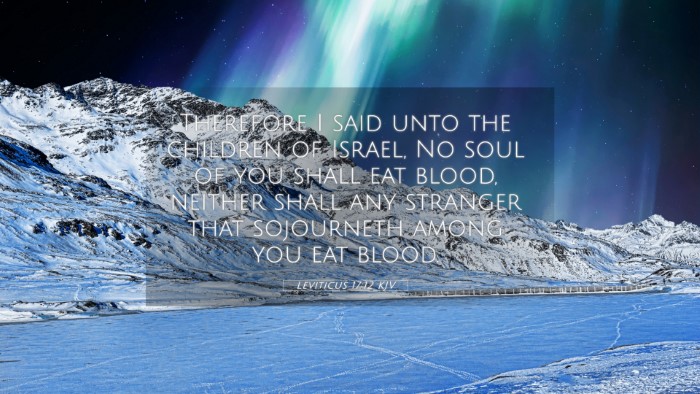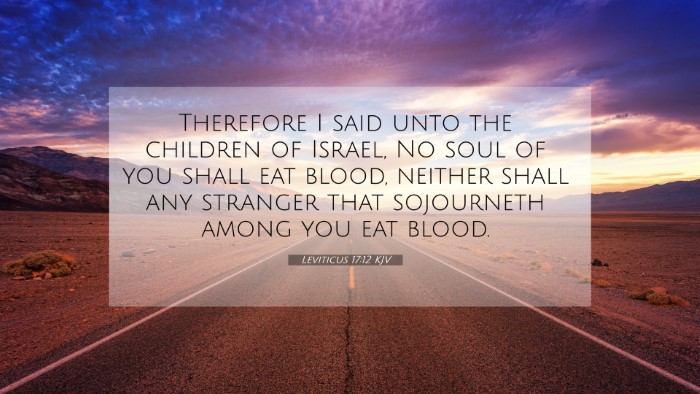Understanding Leviticus 17:12
The verse Leviticus 17:12 states:
"Therefore I said to the children of Israel: 'No one among you shall eat blood, nor shall any stranger who dwells among you eat blood.'" (Leviticus 17:12, NKJV)
This verse is part of a larger discussion concerning dietary laws and the sacredness of blood in the Israelite community. Below, we summarize insights from various public domain commentaries.
Key Themes and Insights
-
The Prohibition of Blood Consumption:
In the words of Matthew Henry, the restriction on consuming blood signifies the life of the flesh, as blood is seen as sacred. God's covenant with His people underscores the sanctity of life.
-
Symbolism of Blood:
Albert Barnes emphasizes that blood symbolizes atonement and life. The act of consuming blood could signify a rejection of God's authority over life and death.
-
Participation in the Community:
Adam Clarke notes that this command serves to maintain the spiritual purity of the Israelite community. Strangers dwelling among them are equally bound by these laws, suggesting inclusivity under God's covenant.
Cross-References for Leviticus 17:12
This verse connects with several other scriptural passages, enhancing our understanding of its significance:
- Genesis 9:4: "But you shall not eat flesh with the life, that is, its blood."
- Deuteronomy 12:16: "Only you shall not eat the blood; you shall pour it on the earth like water."
- Acts 15:20: "But that we write to them to abstain from things polluted by idols, from sexual immorality, from things strangled, and from blood."
- Hebrews 9:22: "And according to the law almost all things are purified with blood, and without shedding of blood there is no remission."
- Leviticus 17:10: "And whatever man of the house of Israel, or of the strangers who dwell among you, who eats any blood, I will set My face against that person who eats blood and will cut him off from his people."
- Numbers 19:17: "And for an unclean person they shall take some of the ashes of the heifer burned for purification from sin, and running water shall be put in a vessel."
- 1 Peter 1:19: "But with the precious blood of Christ, as of a lamb without blemish and without spot."
Thematic Connections and Comparative Analysis
Leviticus 17:12 is deeply interwoven into the fabric of the Law given to Israel, standing alongside themes of holiness, community responsibility, and the sacredness of life. In comparison:
- Holiness: The Israelites' separation from pagan practices is mirrored in 1 Peter 1:16, which calls believers to be holy.
- Life and Atonement: The idea that blood represents life connects profoundly to the sacrificial system depicted in Hebrews 10:4.
- Community Standards: The enforcement of dietary laws promotes unity and identity, as reflected in Colossians 3:14
Conclusion
Leviticus 17:12 serves as a crucial reminder of God's expectations concerning life and community within Israel, extending this principle to the present-day believer. Through cross-referencing various Biblical texts, we can better understand the interconnected nature of scripture and its application in our lives.
Tools for Further Study
- Utilize a Bible concordance to find related verses.
- Employ a Bible cross-reference guide for deeper insights.
- Participate in a cross-reference Bible study group.
- Examine Bible reference resources for comprehensive analyses.
- Familiarize yourself with cross-referencing Bible study methods.
Final Thoughts
As we delve into the meaning of Leviticus 17:12, let us reflect on the importance of understanding scripture holistically. The connections we make through careful study and application enrich our faith and deepen our relationship with God.



